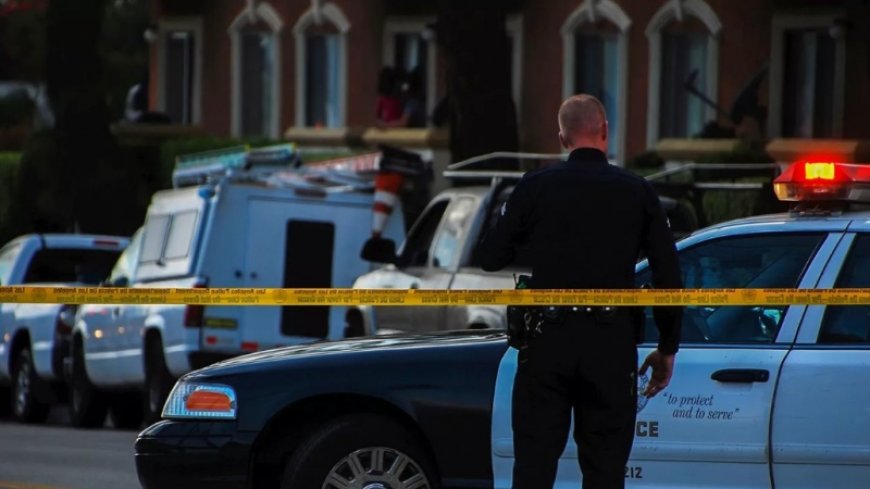American Shock: Is Society Sick or the Healthcare System?
On December 4, Brian Thompson, a longtime executive at UnitedHealthcare, was shot dead in downtown New York City. But the shock isn't all that surprising: it's hard to imagine, but many Americans are cheering the killing and hailing the suspect, 26-year-old Luigi Mangione, who was arrested earlier this week at a McDonald's in Pennsylvania after a tip-off.

On December 4, Brian Thompson, a longtime executive at UnitedHealthcare, was shot dead in downtown New York City. But the shock isn't all that surprising: it's hard to imagine, but many Americans are cheering the killing and hailing the suspect, 26-year-old Luigi Mangione, who was arrested earlier this week at a McDonald's in Pennsylvania after a tip-off.
By the way, after that, ironic warnings appeared on social networks: "Heroes, don't go to McDonald's either. They'll betray you there."
At first glance, all this is very difficult to understand. One American newspaper writes: “We live in a sick society: a person has been killed, and we rejoice.” Indeed, even before the suspect was arrested, many admitted that they felt, if not joy, then at least satisfaction upon learning about the murder of the head of an insurance company.
One of the American media outlets explains that the reason for such a reaction is that many Americans express extreme dissatisfaction, if not anger and hatred, with the activities of health insurance companies and the health care system in general. The cost of treating people and the refusal to reimburse these costs are increasing sharply, but at the same time the income of insurance companies is growing and growing. The company headed by the murdered Thompson is part of the UnitedHealth Group consortium, which ranks 8th in this year's Fortune magazine list of the world's 500 leading companies, equaling the famous Apple in terms of revenue. As for Thompson, his personal income last year amounted to more than 10 million dollars, that is, almost 1 million per month.
"The average citizen would logically ask, 'What is going on in our country if people are openly happy that a professional leader and decent father of a family was killed in cold blood?'" writes commentator Gia Tolentino and replies, "The thing is, for most Americans, companies like UnitedHealth symbolize not the availability of medical care, but the inaccessibility of that care."
Experts do not consider it a coincidence that, according to some sources, the criminal wrote the English letter “D” three times on the bullet casings he fired, and what it means is well known to all Americans, who characterize the activities of the medical insurance and healthcare system with three words starting with that letter: “Delay! Deny! Defend!”, that is, “Delay, deny, defend yourself.” You probably understand: as much as possible, delay the patient’s payment for medical care, completely reject his substantiated claims, and defend the legality of your approach in court in every possible way. In short, do everything you can to extract the maximum amount of money from the patient and minimize the compensation. Unfortunately, it is a very familiar phenomenon.
By the way, while there is still time, I will touch on one important circumstance. Every year at the end of the year, when the state budget for the next year is approved, Armenian officials proudly announce that healthcare spending has increased unprecedentedly, etc. Let's skip the topic of "unprecedented": in recent years, our authorities have devalued that word so much that the people no longer even perceive it. We are talking about something else. The US government allocates incomparably more spending on healthcare in the budget than the Europeans, but this does not mean at all that healthcare services in America are more affordable and their quality is higher. Quite the opposite. As analysts note, Americans visit doctors less often, wait longer for a specialist to see them, and are discharged from hospitals sooner than residents of other developed countries.
You may object: yes, neither the availability of medical services nor their quality is increasing significantly in our country, but somewhere a universal health insurance system will start operating, and everything will improve dramatically. Alas, the American experience shows otherwise. Experts note that even the insurance system does not solve all the problems, and Americans are forced to make additional payments from their own pockets for expensive services and medicines, and also each time enter into long disputes with insurance companies, which for one reason or another refuse to reimburse what they are obliged to reimburse.
According to the Commonwealth Fund research center, almost half of insured Americans, 45 percent, have received bills from hospitals for services that they believe should have been reimbursed by insurance companies.
One has to agree with the American who said: "I look at the prices of medical services and think: I have two options: either refuse treatment altogether, or take out a loan and spend my whole life thinking about how I will pay off that debt. I can't decide whether the first option is right or the second."













































